In our post, we talked about how to nurture demand for your services. Content plays a large role in nurturing demand and building an audience for what you have to say. And Search Engine Optimization marketing plays a large role in helping your audience find your content in the first place.
Simply defined, Search Engine Optimization marketing, or SEO, is about making sure the main search engine algorithms find your content when a user types a specific keyword into the search engine. You optimize your content when you research your keywords and use them strategically in your web pages, online content and social media posts.
Despite Search Engine Optimization’s importance, most small businesses still fail to optimize their web pages with keywords, according to vSplash’s SMB DigitalScape data. This report found that 56.3% of SMB websites have no keyword info for search engine discovery.
Without keywords, your audience can’t find you and if your audience can’t find you, then why are you in business in the first place?
Search Engine Optimization Marketing Getting Started
For business that have yet to optimize their content, getting started is relatively easy. Several programs, both free and for a cost, can generate keyword list reports for you based on your business. As well you can also hire a consultant to help with the project. A great first step is to do a current search engine audit to see how your site is ranking now and set a baseline for your efforts.
Once you have your keywords, you examine your existing content to see how to incorporate those keywords seamlessly and organically into that content. As you plan future content, incorporate keywords into that content and use an analytical tool to determine the effectiveness of those keywords in driving traffic to your website.
Adjusting Search Engine Optimization
Identifying an initial list of keywords is just the start. Search Engine Optimization marketing is a constant process in part because search engine algorithms change regularly. Search engines like Google and Bing want to deliver the best results to the user and so they continuously adjust the formulas that evaluate and judge content.
The major search engines adjust their formulas to protect both the searcher and businesses from keyword heavy content farms that exist as an advertising revenue vehicle.
And so search engine formulas take into account several factors including:
- The originality of content;
- The currency of your content;
- Internal links to other content on your site;
- External links to authoritative sites;
- And the density of your keyword use (too much density is bad).
Businesses must constantly adjust to the changing formula and update content as keyword use changes.
Search Engine Optimization Don’ts
As you consider the Search Engine Optimization marketing value of your content, it’s important to avoid some common mistakes that will hurt instead of help your search engine rankings.
First and foremost, remember that building an audience, providing useful content and nurturing demand are your top priorities. Search Engine Optimization marketing is only a secondary consideration. You can optimize your pages, your blog articles and your social media posts all day but if no one wants to read them, share them or use them, then you actually work against yourself. Build great content first and optimize second.
Secondly, you need to evaluate and analyze your Search Engine Optimization marketing results regularly, just as you would any other marketing strategy. Find out what is working and what isn’t working and adjust your strategies accordingly.
Help your potential clients find you by including Search Engine Optimization marketing in your overall inbound marketing plan.
[ “6854, 6843”]



